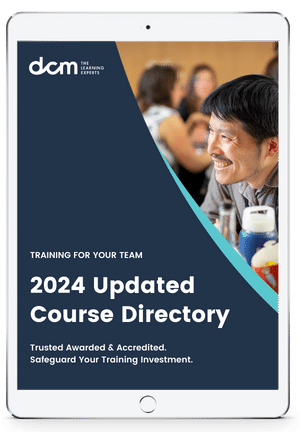Performance Review Tips
The employee should never hear about positive performance or performance in need of improvement for the first time at your formal performance discussion meeting unless it is new information or a thoughtful insight. Effective managers discuss both positive performance and areas for improvement regularly, even daily or weekly with reporting employees. Aim to make the contents of the performance review discussion a re-emphasis of critical points.
Performance Review Is Recommended on a Regular Basis
In the interest of providing regular feedback, performance reviews are not an annual event. Quarterly meetings are recommended with employees. In one mid-sized company, job planning and evaluation occurs twice a year. Career development planning for employees is also scheduled twice a year, so the employee discusses his or her job and career, formally with their manager, at least four times a year.
Goal Setting Is an Essential Component
No matter the components of your performance review process, the first step is goal setting. It is imperative that the employee knows exactly what is expected of his or her performance. Your periodic discussions about performance need to focus on these significant portions of the employee’s job.
Make How You Will Evaluate Performance Clear
During preparation and goal setting, you need to make how you will evaluate the employee’s performance clear. Describe exactly what you’re looking for from the employee and exactly how you will assess their performance. Discuss with the employee his or her role in the evaluation process. If your organization’s performance review process includes an employee self-evaluation, share the form and talk about what the self-evaluation entails.
Sharing Performance Review Format
Make sure that you also share the performance review format with the employee, so that he or she is not surprised at the end of the performance review time period. A significant component of this evaluation discussion is to share with the employee how your organization will assess performance.
The employee needs to understand that if he or she does what is expected, they will be considered a performing employee. In some organizations that rank employees, this is the equivalent of a three on a five-point scale. An employee must do more than just perform to be considered an outstanding employee.
Document Performance Throughout the Year
Avoid the horns and halo effect in which everything discussed in the meeting involves positive and negative recent events. Recent events color your judgment of the employee’s performance. Instead, you are responsible for documenting positive occurrences such as completed projects, and negative occurrences such as a missed deadline, during the entire period of time that the performance review covers. You need to make these notes throughout the year to assess the employee's performance fairly.
Solicit Feedback
Solicit feedback from colleagues who have worked closely with the employee. Sometimes called 360-degree feedback because you are obtaining feedback for the employee from his boss, coworkers, and any reporting staff, you use the feedback to broaden the performance information that you provide for the employee.
Start with informal discussions to obtain feedback information. Consider developing a format so that the feedback is easy to digest and share with the manager. If your company uses a form that you fill out in advance of the meeting, give the performance review to the employee in advance of the meeting. This allows the employee to digest the contents before her discussion of the details with you. This simple gesture can remove a lot of the emotion and drama from the performance review meeting.
Preparing for a Discussion
Prepare for the discussion with the employee. Never go into a performance review without preparation. If you wing it, performance reviews fail. You will miss key opportunities for feedback and improvement, and the employee will not feel encouraged about his successes. The documentation that you maintained during the performance review period serves you well as you prepare for an employee's performance review.
Practice Approaches With HR
If needed, practise approaches with your Human Resources staff, a colleague, or your manager. Jot notes with the main points of feedback. Include bullet points that clearly illustrate the point you plan to make to the employee. The more you can identify patterns and give examples, the better the employee will understand and be able to act upon the feedback.
Meeting With an Employee
When you meet with the employee, spend time on the positive aspects of his or her performance. In most cases, the discussion of the positive components of the employee’s performance should take up more time than that of the negative components.
For your above-average performing employees and your performing employees, positive feedback, and discussion about how the employee can continue to grow her performance should comprise the majority of the discussion. The employee will find this rewarding and motivating.
The Conversation is the Key to a Productive Performance Meeting
The spirit in which you approach this conversation will make the difference in whether it is effective. If your intention is genuine, to help the employee improve, and you have a positive relationship with the employee, the conversation is easier and more effective.
The employee has to trust that you want to help them to improve their performance. The employee needs to hear you say that you have confidence in their ability to improve. This helps them believe that they have the ability and the support necessary to improve.
The conversation is the keyword when you define a performance review meeting. If you are doing all of the talking or the meeting becomes a lecture, the performance review is less effective. The employee will feel yelled at and treated unjustly. This is not how you want employees feeling as they leave their performance reviews.
Ask Question to Make the Meeting Motivational
You want an employee who is motivated and excited about their ability to continue to grow, develop, and contribute. Aim for performance review meetings in which the employee talks more than half of the time. You can encourage this conversation by asking questions such as these.
- What do you expect to be the most challenging about your goals for this quarter?
- What support can the department provide for you that will help you reach these goals?
- What are your hopes for your achievements at our company this year?
- How can I be a better manager for you?
- How often would you like to receive feedback?
- What kind of schedule can we set up so that you don't feel micromanaged, but I receive the feedback that I need as to your progress on your goals?
- What would be a helpful agenda for our weekly one-on-one meetings?
Source: The Balance Careers


_165x115_fc3.jpg)
_165x115_fc3.jpg)




